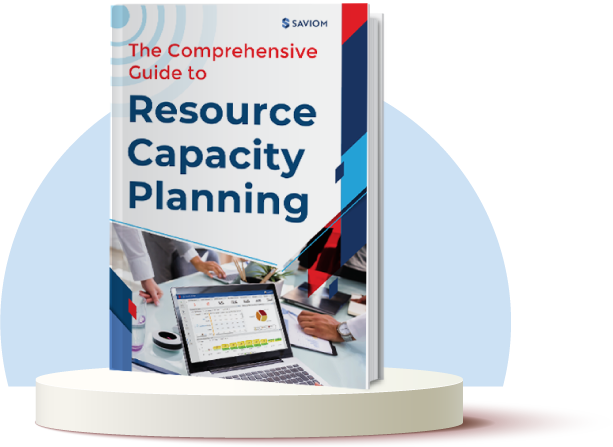According to Deloitte- “82% of the big employers of the accounting and finance industry find it very challenging to attract and retain talent.”
Finding the right staff members is only the first hurdle; the next task will be to keep them engaged. So, what initiatives can firms adopt to attract and retain the A&A workforce?
Building a robust talent retention strategy that focuses on compensation, benefits, and flexibility, along with career advancement, can make a huge difference.
It will help strengthen your talent pipeline, improve employee engagement, increase productivity, and more.
This post emphasizes some effective strategies to help F&A firms retain talent and drive your business into the future.
Before that, let’s understand the effects of attrition in the audit and accounting industry.
Consequences of high employee turnover in the audit and accounting industry
The “great resignation trend” has significantly impacted the global workforce, including the audit & accounting industry. As auditors and accountants are the most valuable assets of these firms, high employee turnover rates can hinder the success of these organizations.
Let’s discuss some of the outcomes of employee turnover.
Decreases profitability- When accounting personnel leaves, the organization bears the additional financial burden of recruiting and training new consultants. This impacts the company’s revenue and decreases its profitability.
Poor work quality – Employee turnover will affect the day-to-day operations such as bookkeeping, accounting, etc. This may lead to poor work quality due to a lack of competent consultants, increased workload for existing consultants, and more. As a result, it affects the project delivery, ultimately causing customer discontent.
Reduces team efficiency – When one of the consultants or auditors working in a team quits their job, it disrupts the entire team workflow and affects collaboration. This, in turn, reduces the efficiency and productivity of the team.
Loss of professional consultant knowledge – Senior accounting personnel possess knowledge, skills, and abilities gained through experience. When they leave the organization, it becomes challenging to replace the tacit knowledge they have.
Having listed the repercussions of employee turnover, let’s move on to understand some effective techniques that A&A firms can implement to retain their top talent.
7 ways to retain talent in an audit and accounting firm
Consider the impact on your business if one of your key employees suddenly decides to quit. It will have a negative implication on the project’s progress and adversely affect the team morale. Therefore, preventing this from happening is the best solution. But how do you achieve it?
Although some attritions cannot be avoided, fortunately, most can be avoided with effective strategies.
Here are some proven ways to help your organization build a cohesive team of professionals that will stay in the company for the long haul.
Align the hiring strategies with project requirements
According to a survey, 80% of employee turnover is due to bad hiring decisions.
The first step is for managers to assess the project demands and estimate the skills required. Then, they can evaluate consultants’ skills to meet short and long-term goals in advance. If they cannot source the consultants within the organization, the next step is to coordinate with HR and create a hiring plan that aligns with the project requirements. For instance, the A&A firm has landed a pipeline project of managing a company’s tax functions and policies. For this, they need tax analysts and consultants.
However, if the firm does not have the necessary consultants within the organization, they must create a well-structured hiring plan to procure the required skill sets. Managers must assess the short- and long-term project requirements and accordingly request the HR to hire permanent or contingent consultants. This will help eliminate last-minute firefighting, enable organizations to achieve their goals, and boost profitability.
Ensure competent allocation of consultants and auditors
Assigning accounting personnel to a project based on their skills and experience is critical to retain talent. However, when an experienced or skilled consultant is allocated to low-priority work, it will lower their morale and lead to disengagement in work. For example, suppose a senior auditor whose job is to plan and implement strategies for complex auditing projects is given the work of junior auditors, like checking the accountant’s work or examining documents. In that case, it will bring down their confidence and affect productivity.
Moreover, if this kind of work persists for longer, it will make them leave the organization. Conversely, when junior consultants are given high-priority critical work, they will feel overburdened and experience burnout. Additionally, being overloaded with work will jeopardize the project quality, cause project delays and impact business efficiency. Hence, accounting managers must ensure the competent allocation of work to consultants based on qualifications, abilities, availability, cost, etc. This will improve the productivity of the consultants’ quality of work and reduce turnover rates.
Facilitate stretch assignments for F&A professionals periodically
Stretch assignments are short-term projects assigned to employees that enable them to build their skills and abilities. Due to technological advancements, there is a rise in the demand for skilled F&A professionals; hence these assignments are gaining prominence in the audit and accounting industry. As a result, accounting managers must provide challenging opportunities beyond consultants’ current capabilities in the form of a new project, task, or role.
For example, Suppose an A&A firm has got an overseas accounting project. For this, they need specialized professionals with advanced accounting knowledge. Managers can identify suitable consultants from the resource pool and provide them with a stretch assignment related to accounting, like reviewing and verifying client documents, understanding the country’s tax laws and accounting standards, etc. If consultants perform well, they can be considered for multiple projects. In this way, when consultants are given on-the-job training and opportunities to explore new skills, they feel motivated and purposeful. This leads to employee job satisfaction, making it easier for companies to retain them.
Optimize the workload of accountants and consultants
According to a survey, almost 99% of accountants experienced some level of burnout, with an average score of 47 points.
Without insights into the utilization levels of consultants, managers can allocate them either excess or minimum work. To combat these issues, managers must have foresight into the current and future bookings of the consultants and their utilization rates. In case resources are underutilized, managers can mobilize them from non-billable to strategic/billable projects to boost financial returns.
When consultants are overutilized, it will lead to burnout and productivity issues. To combat this, managers can implement resource leveling for projects with flexible timelines by adjusting the start and end dates. Likewise, resource smoothing can be applied for time-restricted projects, where either the work can be redistributed as per consultant schedules or additional resources can be deployed. This way, managers can ensure the optimal utilization of consultants and equal workload distribution across the team members, thereby improving employee retention.
Implement mentor and mentee programs across the organization
According to a survey, the retention rates of mentees are 72% higher than 49% who do not participate in mentorship programs.
Organizations must include workplace mentoring programs wherein the mentors play a crucial role in improving the mentee’s career trajectory significantly. As audit and accounting is a skill-intensive industry, it is essential to focus on the consultants’ career growth to retain the top talent. Senior members can serve as mentors to their less-seasoned peers and help shape their finance skills and development in other areas.
Alternatively, these mentors can also teach, advise, and direct mentees to reach their individual goals.
This will help them expand their network and grow professionally. In this way, organizations can secure employee loyalties and promote internal progression within the company.
Provide career development opportunities for consultants
As per a survey, Investing in your team’s training & development is a technique that can prevent people from exiting.
Hiring and retaining skilled accounting staff is a perennial concern for A&A firms. For this, the organizations must facilitate Individual Development Program (IDP) to help consultants pursue their interests. For instance, the evolution of data analytics, AI, and ML enables accounting firms to make better strategic decisions and significantly improves consultants’ productivity and work quality. Therefore, managers must identify the existing or current skillsets and facilitate learning platforms or training programs to equip the consultants with the in-demand technical skills.
Moreover, to prevent accounting personnel from leaving, companies must implement measures such as cross-training, job shadowing, blended learning, peer-to-peer coaching, etc. When organizations show commitment toward the individual success of the employees, it makes them feel valued. Thereby improving employee engagement and retention.
Formulate effective employee recognition and incentive programs
As per a Gallup survey, companies that make employee recognition a priority have workers who are 56% less likely to be looking or watching for job opportunities.
Employee recognition, incentives, and benefits are vital to the talent retention strategy. The incentive and acknowledgment plans must include retirement benefits, bonuses, salary hikes, celebrating the crucial achievements of employees, reward programs, etc. Furthermore, recognizing the employees’ efforts positively impacts their performance and motivates other team members to strive harder to achieve their goals.
For instance, one of your onsite consultants delivers excellent services to the client by tracking their financial transactions accurately, ensuring the payments are received and paid on time, etc. Now, it’s important to provide words of positive affirmation and recognize the efforts with appropriate incentives, reward programs, etc. This motivation will have a direct impact on higher productivity and engagement.
Having discussed the effective strategies for talent retention, let’s see how an effective resource management software can help improve it.
How can resource management software help improve retention in audit and accounting firms?
As we look at the data on talent management trends, we see that technology and advanced tools significantly support many retention strategies. Thus, leveraging a next-gen resource management tool can help audit and accounting firms to streamline their talent strategy.
Let’s see how:
The advanced ERM tool offers 360-degree visibility of the consultants’ profiles, including their skills, competencies, experiences, availability, costs, etc. Additionally, the custom filters enable the accounting managers to identify and deploy the best-fit resources to the projects and pre-empt allocating over/under-skilled consultants.
Moreover, the competency matrix enables managers to identify and consider the right consultants for stretch assignments.
Furthermore, centralized visibility into the consultants’ skill inventory will help the organization make informed decisions regarding implementing effective retention strategies. Accordingly, managers can develop training and upskilling programs for the consultants.
Accounting supervisors can also periodically analyze the utilization levels of the consultants with real-time BI reports like color-coded heatmaps and actual vs. forecast reports. These insights can help implement appropriate techniques to optimize consultants’ utilization levels.
Moreover, the tool’s collaboration feature enables accounting professionals to foster communication between teams within a single system.
Finally, managers can publish open positions for various projects with the open seat feature. It allows consultants to apply for vacancies based on their interests. This way empowering the workforce helps prevent a “Great Resignation trends” at your firm.
Wrapping up
Employee retention is something every accounting firm faces and often struggles with, but it’s critical to firms that are focused on success—and succession. – Illinois CPA Society.
Retaining finance and accounting professionals is one of the significant challenges faced by A&A firms. Organizations can improve employee retention by implementing the above-mentioned strategies paired with advanced resource management software. This will help them achieve their business goals and boost profitability and sustainability.
The SAVIOM Solution
SAVIOM is the market leader in offering the most powerful and configurable solution for managing your enterprise resources effectively and efficiently. With over 20 years of experience, this Australian-based MNC has created its global presence across 50 countries and helped more than 100 customers achieve their business goals. SAVIOM also has highly customizable products for project portfolio management, professional service automation, and workforce planning software based on business requirements.













